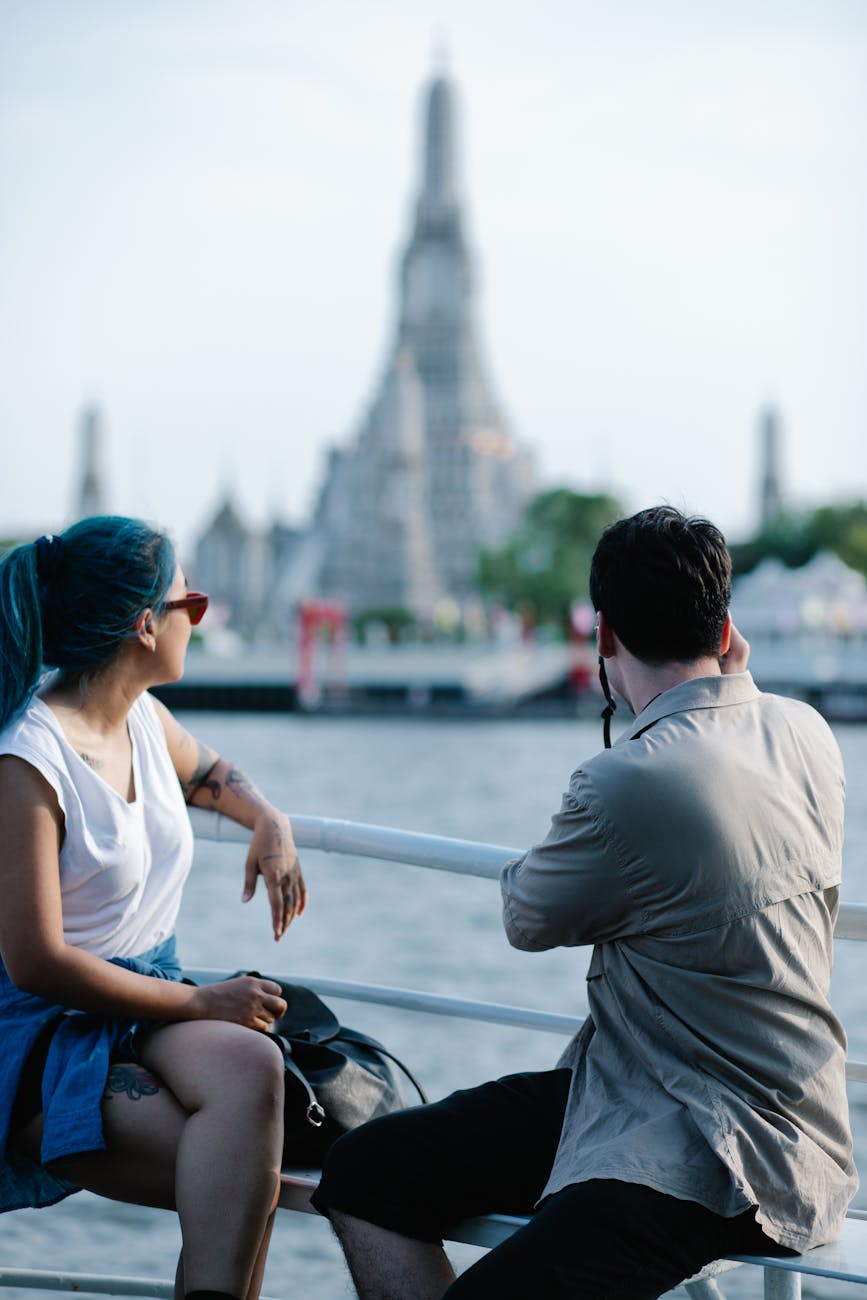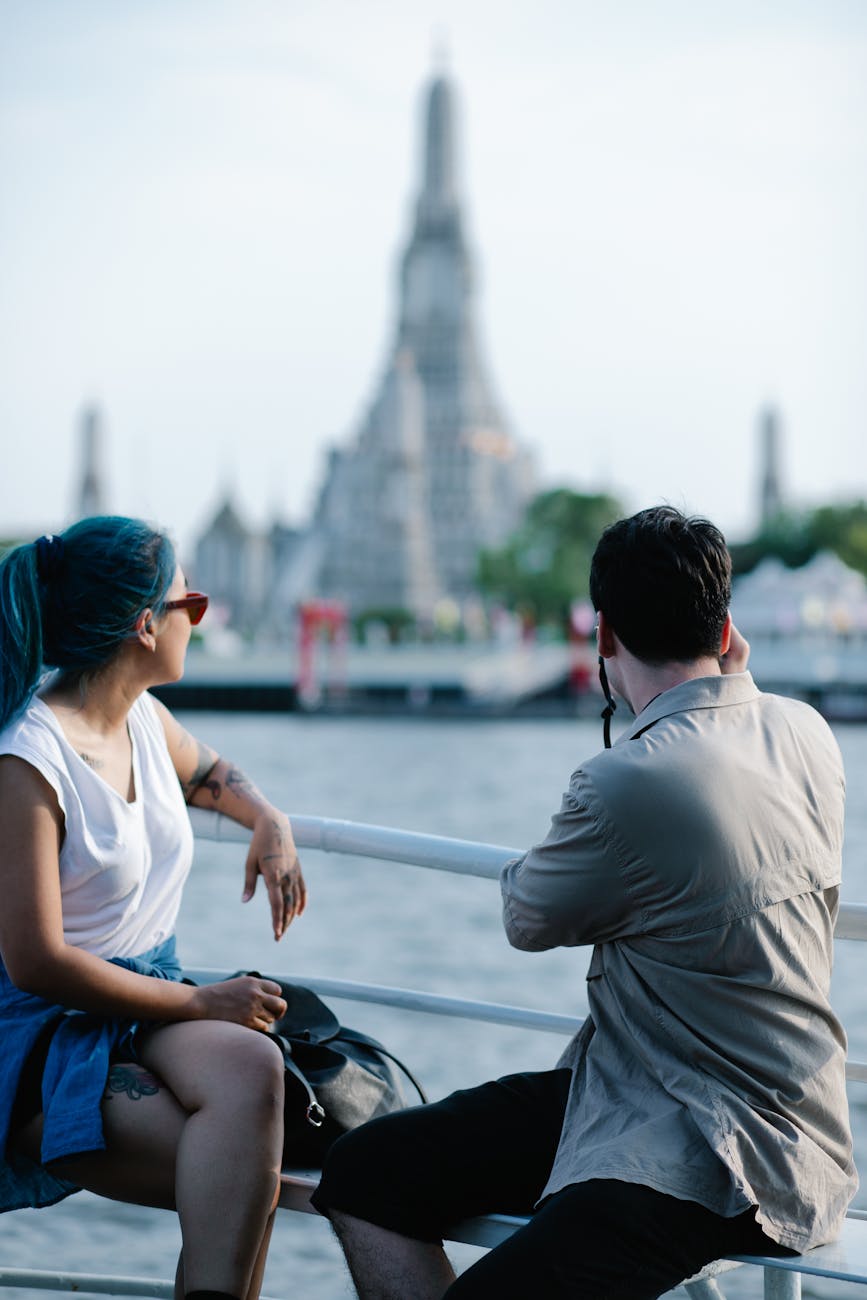Embarking on a trip to Thailand is more than just exploring stunning landscapes and savoring world-class cuisine; it is a journey through time, culture, and legacy. The rich tapestry of Thailand’s history is woven by several influential dynasties that have shaped its customs, art, and traditions. This blog post dives deep into these dynasties that laid the groundwork for the captivating culture you can experience today. Uncover how these powerful reigns contributed to Thailand’s unique blend of heritage and modernity and discover some local treasures along the way.
For those preparing for a visit, this journey not only enriches your understanding of Thailand’s past but also enhances your travel experience. By appreciating the historical significance behind the temples, festivals, and art forms, travelers can create a deeper connection with the vibrant spirit of this beautiful nation. Let’s explore the influential dynasties that have shaped Thailand’s remarkable cultural identity.
Table of Contents
- Sukhothai Dynasty
- Ayutthaya Dynasty
- Chakkri Dynasty
- Cultural Legacy of the Dynasties
- Final Thoughts on Thailand’s Rich Heritage
- Frequently Asked Questions
Sukhothai Dynasty
The Sukhothai Dynasty marked a significant turning point in Thailand’s history, emerging in the 13th century as a powerful kingdom that set the foundation for Thai culture. This dynasty is celebrated for establishing Theravada Buddhism as the state religion, which profoundly influenced the spiritual landscape of the nation. The period saw the creation of the Thai script, attributed to King Ramkhamhaeng, which not only fostered literacy but also aided in uniting diverse ethnic groups under a common language. Visitors exploring the Sukhothai Historical Park witness the exquisite ruins of temples and royal palaces that reflect the zenith of Sukhothai architecture and artistry. The impressive Buddha statues and beautifully designed stone carvings stand as testaments to the artistry of the period. This dynasty laid the groundwork for Thailand’s national identity, infusing it with a sense of pride and belonging.
Additionally, the cultural developments during the Sukhothai Era extend beyond religion and writing. Arts flourished as the kingdom emphasized dance and music, with traditions still echoing in contemporary Thai performances. Festivals such as Loy Krathong, which celebrates the end of the rainy season, trace their roots back to this era, demonstrating how past traditions remain vibrantly alive in modern Thailand. For tourists, participating in these festivals can offer a unique glimpse into the living culture, all while appreciating the historic narratives that accompany them. Hence, a visit to the temples and an understanding of their historical background can make tourists feel rooted in an ancient yet enduring cultural experience.
Ayutthaya Dynasty
Following the Sukhothai period, the Ayutthaya Dynasty emerged in the 14th century, rising to prominence and forming a majestic capital that surpassed many other cities of the time. This era was characterized by extensive trade networks, bringing in influences from various cultures including Persian, Indian, and Chinese. Ayutthaya became a vibrant hub for commerce and diplomacy, which significantly impacted its art, architecture, and cuisine. The impressive ruins of Ayutthaya, now a UNESCO World Heritage Site, boast grand palaces and stunning Buddhist temples, reflect a melange of artistic styles that symbolize the cultural exchanges that were taking place. Tourists can explore the historical park, capturing photographs of iconic landmarks like Wat Phra Si Sanphet and Wat Chaiwatthanaram, while experiencing the city’s extraordinary historical ambiance.
Culturally, the Ayutthaya Dynasty is noted for its patronage of the arts and literature, alongside the establishment of the royal court system, which structured governance and societal organization in Thailand. During this period, Thai food began to flourish, and the fusion of flavors and cooking techniques cemented staples that remain popular today. Delving into local cuisine during your visit can offer a flavorful educational experience. Sampling traditional dishes in markets or local restaurants is an excellent way to connect with this rich heritage while enjoying food that is both delicious and reflective of the country’s vast history. Thus, Ayutthaya is not just about what you see; it is also about what you taste and feel, connecting visitors to a past vibrant with life and culture.
Chakkri Dynasty
The Chakkri Dynasty, established in 1782, continues to reign and represents the modern era of Thailand’s history. This dynasty is synonymous with the establishment of Bangkok as the capital city, which has grown into a bustling metropolis while maintaining its cultural roots. King Rama I played a crucial role in promoting Buddhism and renewing royal patronage towards the arts, architecture, and education, thereby enriching Thailand’s cultural heritage. Landmark constructions like the Grand Palace and Wat Phra Kaew showcase the sophisticated craftsmanship and vivid artistry characteristic of this dynasty. Tourists flock to these sites not only for their historical significance but also to admire the intricate details that embody Thailand’s elegant style. Visiting these landmarks allows travelers to grasp a deeper understanding of the role of monarchy and religion in shaping contemporary Thai society.
Moreover, the Chakkri dynasty has been pivotal in navigating the challenges of Western colonialism, preserving Thai sovereignty while modernizing various aspects of society. Thailand’s transition into a constitutional monarchy under King Rama VII heralded significant social changes. Today, festivals that originated in this era, such as Songkran, resonate deeply with Thai people and attract millions of visitors. Sharing in these celebrations enables travelers to immerse themselves in traditional customs and test the waters of cultural understanding. With its glorious past balmy with contemporary influences, the Chakkri Dynasty continues to evoke admiration among those who pursue wisdom and cultural enrichment during their travels.
Cultural Legacy of the Dynasties
The legacies of Thailand’s influential dynasties permeate every aspect of Thai life, from artistic expression and religion to cuisine and social structures. The deep-rooted influence of Buddhism fosters a culture of mindfulness that is inherently woven into daily activities, and festivals often reflect this spiritual devotion. For instance, the intricate Loy Krathong festival involving floating delicate lotus-shaped rafts is a vivid reminder of the country’s reverence for nature. Moreover, art forms such as traditional dance and theater draw inspiration from historical narratives, leaving a lasting impression on both locals and visitors alike. Engaging in a Thai dance class or watching a traditional performance can be enlightening experiences that allow you to appreciate the skill and storytelling involved.
Food serves as another significant cultural connector for travelers, with recipes and cooking techniques passed down through generations. Understanding the origins of dishes like massaman curry and pad Thai gives insight into the historical cross-cultural exchanges that shaped modern Thai cuisine. Engaging a local culinary expert for a cooking class adds another layer of historical appreciation while providing a deliciously rewarding outcome. Overall, to genuinely appreciate Thailand, one must explore the rich cultural legacy left by these dynasties, which continues to inspire generations, ensuring that every visit reveals layers upon layers of history waiting to be uncovered.
A Journey into Thailand’s Cultural Heart
Ultimately, a trip to Thailand transcends beyond mere sightseeing; it is an engagement with a vibrant historical tapestry that continues to evolve. Exploring the footprints of the Sukhothai, Ayutthaya, and Chakkri dynasties enables visitors to connect the dots between past and present, enhancing your travel experience along the way. The reverberations of these dynasties can be observed in the vibrant markets, sacred temples, and even in the friendly interactions with locals. Thus, understanding Thailand’s rich cultural history is essential for a full appreciation of the land you are stepping into. As modern travelers, embracing this multifaceted heritage enriches the journey, making each moment more meaningful.
Frequently Asked Questions
What is the significance of the Sukhothai Dynasty in Thai culture? The Sukhothai Dynasty is known for establishing the Thai script and promoting Theravada Buddhism as the state religion, which shaped the nation’s cultural and spiritual identity.
Why is Ayutthaya a UNESCO World Heritage Site? Ayutthaya was once a thriving city characterized by impressive architecture and a rich cosmopolitan culture, serving as the capital for over 400 years and a major trading hub.
How can I experience Thai culture during my visit? Engaging in local festivals, learning traditional dances, joining cooking classes, and exploring historical sites are all excellent ways to immerse yourself in Thai culture.
What are the popular festivals in Thailand that trace back to its dynasties? Festivals like Loy Krathong and Songkran connect guests to the historical traditions of Thailand, reflecting the influences of ancient dynasties on contemporary culture.
How does the Chakkri Dynasty influence modern Thailand? The Chakkri Dynasty has played a crucial role in modernizing Thailand, establishing Bangkok as the capital, and maintaining the monarchy, which remains an integral part of Thai identity.
Image Credit: Pexels





